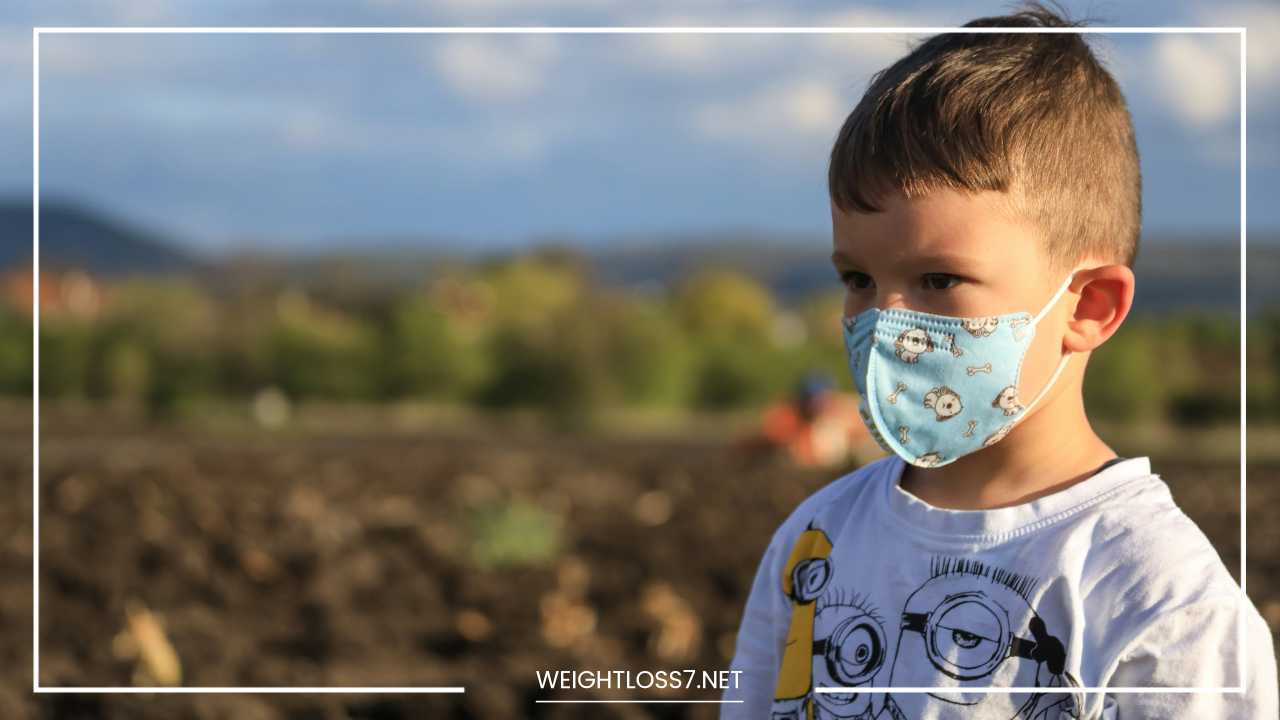How Allergy Testing Can Help You Manage Symptoms

Allergy Testing
Allergy Testing: Unmasking the Culprits Behind Your Sneezes and Sniffles
For millions of people worldwide, allergies are a constant companion. Whether it’s the seasonal sniffles brought on by springtime pollen or the itchy hives triggered by a certain food, these reactions can significantly impact your daily life. But what if you could identify the exact cause of your allergies and take control of your symptoms?
This is where allergy testing comes in. By pinpointing the specific allergens (substances that trigger an immune system response) that cause your reactions, allergy testing can be a game-changer in managing your allergies and improving your overall well-being.
Why Get Allergy Testing?
If you experience chronic allergy symptoms like:
- Sneezing
- Runny or stuffy nose
- Itchy, watery eyes
- Hives
- Skin rash
- Wheezing
- Difficulty breathing
Allergy testing can help you understand the root cause and develop a personalized treatment plan. Here are some key benefits of allergy testing:
- Targeted Treatment: Knowing exactly what you’re allergic to allows your doctor to recommend the most effective treatment options. This could include medications like antihistamines, allergy shots (immunotherapy), or avoidance strategies.
- Improved Quality of Life: By effectively managing your allergies, you can experience a significant improvement in your quality of life. You’ll likely have fewer bothersome symptoms, allowing you to participate more fully in activities you enjoy.
- Reduced Risk of Severe Reactions: Identifying allergies, especially food allergies, can help prevent accidental exposure to allergens and potentially life-threatening reactions like anaphylaxis.
- Peace of Mind: Knowing what triggers your allergies can provide a sense of control and reduce anxiety associated with unpredictable symptoms.
Types of Allergy Testing
There are two main types of allergy tests: skin prick tests and blood tests. Each has its advantages and is best suited for different situations.
-
Skin Prick Test: This is the most common type of allergy testing. During the test, a small amount of a suspected allergen is placed on your skin, usually on your forearm or back. The doctor then pricks the skin slightly to allow the allergen to enter. If you’re allergic, a raised bump or welt will appear at the test site within 15-20 minutes. Skin prick tests are typically used to test for allergies to:
- Airborne allergens like pollen, dust mites, and mold spores
- Food allergens like peanuts, milk, and shellfish
- Animal dander from pets like cats and dogs
-
Blood Test (Specific IgE): This test measures the amount of specific antibodies (immunoglobulins E or IgE) in your blood that are produced in response to allergens. Blood tests are particularly helpful for:
- Infants and young children who may be difficult to test with skin prick tests
- People with severe skin conditions that may interfere with skin prick testing
- Identifying allergies to a wider range of allergens, including medication allergies
Beyond the Basics: Less Common Allergy Tests
While skin prick tests and blood tests are the most common types of allergy testing, there are a few less common options available in certain situations:
-
Intradermal Test: This test is similar to a skin prick test, but the allergen is injected into the deeper layer of the skin instead of being pricked on the surface. This test is typically used only when skin prick tests are inconclusive.
-
Patch Test: This test is used to diagnose allergic contact dermatitis, a delayed allergic reaction that causes itchy, red, and inflamed skin. During a patch test, small patches containing suspected allergens are applied to your back and left in place for 48-72 hours. The skin is then examined for reactions. Patch tests can be helpful for identifying allergies to:
- Metals like nickel
- Cosmetics and fragrances
- Latex
- Topical medications
-
Oral Food Challenge: This test is used to confirm a suspected food allergy in a controlled medical setting. During the challenge, gradually increasing amounts of the suspected food allergen are given to the patient under close supervision by a doctor. This test should only be performed by a healthcare professional trained to manage allergic reactions.
What to Expect During Allergy Testing
Skin Prick Test:
- Before the test, your doctor will discuss your medical history and current medications.
- Certain medications, such as antihistamines, may need to be stopped for a few days before the test.
- During the test, your skin will be cleaned, and a small amount of each suspected allergen will be applied.
- The doctor will prick the skin at each test site.
- The test sites will be monitored for a reaction within 15-20 minutes.
- Once the test is complete, your doctor will discuss the results with you and explain what they mean.
Blood Test:
- A blood sample will be drawn from your arm.
- The blood will be sent to a laboratory for analysis.
- It may take a few days to receive your test results.
Preparing for Allergy Testing
- Discuss your medical history and current medications with your doctor.
- Inform your doctor about any allergies you have to medications or materials like latex.
- Follow your doctor’s instructions regarding stopping any medications before the test.
- Wear loose-fitting clothing that allows easy access to your arm or back for skin prick testing.
Understanding Your Allergy Test Results
The results of your allergy test will be reported as positive, negative, or weakly positive.
- Positive: This indicates that you are likely allergic to the tested allergen.
- Negative: This suggests that you are not allergic to the tested allergen.
- Weakly Positive: This result can be interpreted in different ways depending on your symptoms and other factors. Your doctor will discuss the significance of this result with you.
What to Do After Allergy Testing
Once you have received your allergy test results, your doctor will work with you to develop a personalized treatment plan. This may include:
- Medications: Antihistamines can help alleviate allergy symptoms by blocking the effects of histamine, a chemical released by the body during an allergic reaction. Decongestants can help clear stuffy sinuses. In severe cases, corticosteroids may be prescribed to reduce inflammation.
- Allergy Shots (Immunotherapy): This treatment involves receiving gradually increasing doses of the allergen over time. This helps desensitize your immune system and reduce your reaction to the allergen. Allergy shots are a long-term treatment, typically requiring injections for several years.
- Allergen Avoidance: If possible, avoiding your triggers is the most effective way to manage allergies. This may involve taking steps to reduce exposure to airborne allergens like pollen or dust mites, or eliminating certain foods from your diet if you have food allergies.
- Lifestyle Changes: Certain lifestyle modifications can help manage allergies. These may include using air purifiers at home, washing bedding frequently in hot water, and avoiding irritants like smoke and pollution.
Living with Allergies
While there is no cure for allergies, allergy testing and treatment can significantly improve your quality of life. By understanding your triggers and taking steps to manage them, you can reduce bothersome symptoms and participate more fully in your daily activities. Here are some additional tips for living with allergies:
- Carry an EpiPen (epinephrine auto-injector) if you have severe allergies: This is a life-saving medication that can be used to treat anaphylaxis, a severe allergic reaction that can cause difficulty breathing and shock.
- Educate yourself about your allergies: The more you know about your triggers and how to manage them, the better equipped you will be to deal with them.
- Join a support group: Connecting with others who understand what you’re going through can be a source of encouragement and support.
The Future of Allergy Testing and Treatment
Researchers are constantly exploring new ways to diagnose and treat allergies. Some promising areas of research include:
- New allergy tests: Tests that can more accurately identify allergies and differentiate between allergies and other conditions are being developed.
- Immunotherapy advancements: New forms of immunotherapy, such as sublingual immunotherapy (allergy drops placed under the tongue) and allergy patches, are being investigated to provide more convenient and effective treatment options.
- Allergy prevention: Researchers are studying ways to prevent allergies from developing in the first place, particularly in children.
While the core information about allergy testing has been covered, we can delve deeper into some interesting aspects to enrich the reader’s understanding:
Allergy Testing for Children
Many parents worry about allergy testing for their children. Here’s what to know:
- Age Appropriateness: Skin prick tests are generally safe and effective for children as young as two years old. Blood tests may be preferred for infants or very young children who may be difficult to test with skin pricks.
- Preparation: Talk to your child’s doctor about what to expect during the test and how to prepare your child emotionally.
- Results and Management: Once you have your child’s test results, discuss a management plan with your doctor. This may involve allergy medications, allergen avoidance strategies, or immunotherapy depending on the allergens identified and the severity of your child’s symptoms.
Allergic Reactions vs. Intolerances
It’s important to distinguish between allergies and intolerances. Allergies involve the immune system, while intolerances are digestive issues. Allergy testing helps identify true allergies, while intolerance diagnosis typically involves elimination diets or breath tests.
Allergy Testing and Mental Health
Chronic allergies and unpredictable symptoms can take a toll on mental well-being. Anxiety and even depression can be associated with allergies.
If you experience these emotions alongside your allergies, discuss them with your doctor. There are resources available to manage both your allergies and mental health.
Complementary and Alternative Therapies
While not a substitute for traditional allergy treatment, some complementary and alternative therapies may offer additional relief for some people. These can include:
- Probiotics: These live bacteria may help support a healthy gut microbiome, which can play a role in immune function.
- Quercetin: This natural flavonoid found in fruits and vegetables may have anti-inflammatory and antihistamine properties.
- Saline nasal irrigation: Flushing the nasal passages with saline solution can help remove allergens and soothe irritated nasal tissues.
It’s important to note: There is limited scientific evidence to support the effectiveness of all complementary and alternative therapies for allergies. Always discuss these options with your doctor before trying them.
The Emotional Impact of Allergies
Living with allergies can be frustrating and isolating. Here are some tips for managing the emotional impact:
- Focus on what you can control: While you can’t control your allergies, you can control how you manage them. Focus on the steps you’re taking to feel better.
- Connect with others: Talking to others who understand allergies can be a source of support and encouragement. Consider joining an online or in-person support group.
- Practice relaxation techniques: Techniques like meditation or deep breathing exercises can help manage stress and anxiety associated with allergies.
By following these tips and working with your doctor, you can effectively manage your allergies and improve your overall well-being.
Final Word
Allergy testing can be a powerful tool for identifying the root cause of your allergies and developing a personalized treatment plan. By taking control of your allergies, you can breathe easier and live a healthier, happier life. If you suspect you have allergies, talk to your doctor about whether allergy testing is right for you.
Disclaimer: This blog post is for informational purposes only and should not be construed as medical advice. Always consult with a qualified healthcare professional for diagnosis and treatment of allergies.

















